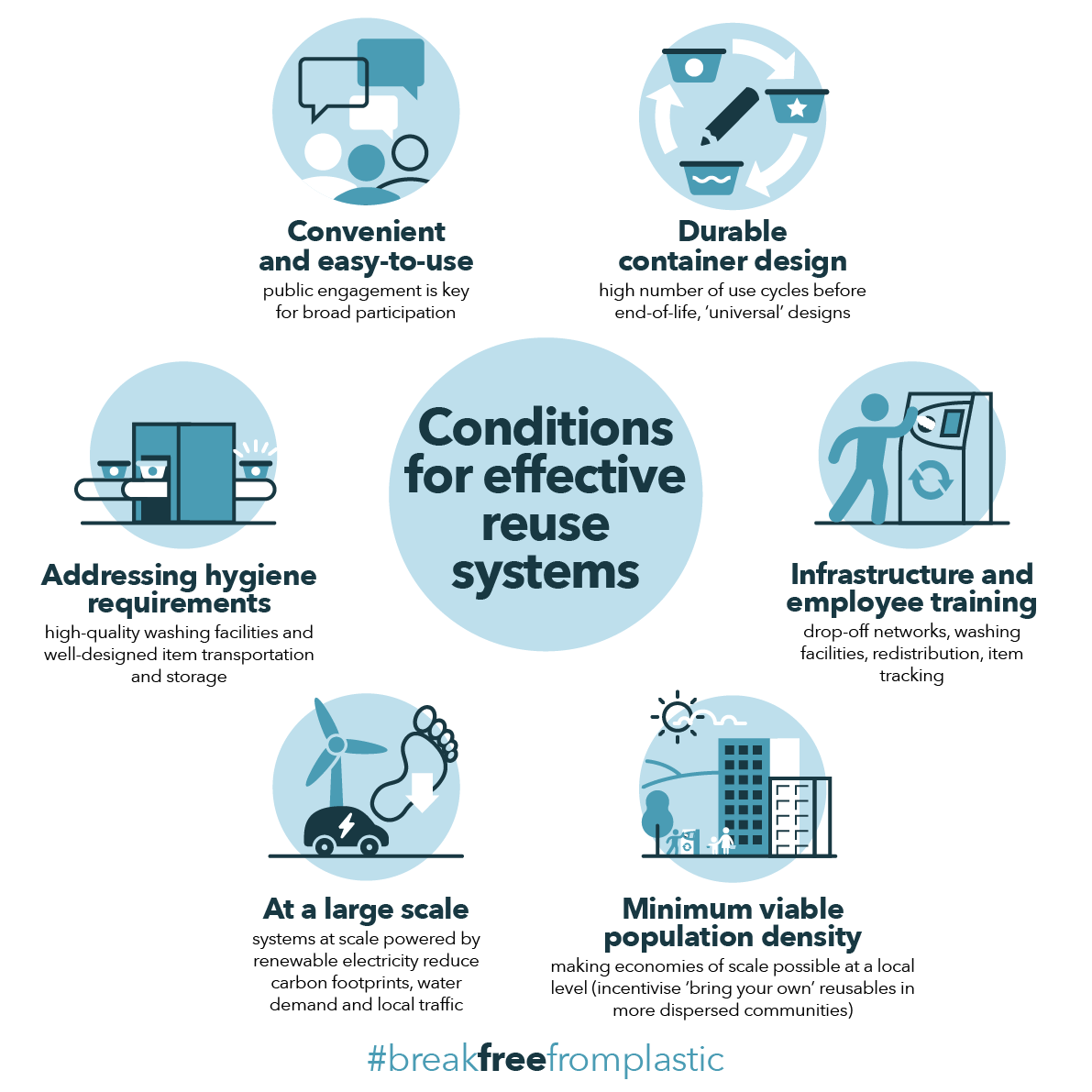Brussels, October 15 – Reusable alternatives to wasteful single-use plastics are on the rise across Europe, and national governments have the tools at their disposal to boost them and slash plastic pollution, according to a new report released today by Break Free From Plastic Europe and the Rethink Plastic alliance.
The Reusable solutions: how governments can help stop single-use plastic pollution report shows how a mixture of public and private initiatives are slashing the consumption of single-use plastic packaging and products across Europe. They include:
- The reusable cup scheme ‘ReCup’ is used by almost 3,000 vendors in over 450 cities in Germany. Citizens pay a €1 deposit per cup, which is refunded when they are returned to a vendor. Half a million of these cups are in circulation, and each can be reused up to 500 times.
- 1.5 tonnes of food packaging waste are saved per year in Brussels, where more than 1,000 members use “Tiffin” reusable steel takeaway boxes. This also saves €20,000 in the purchase of disposable containers.
- Deposit return schemes for reuse can work: in Germany’s system 99% of reusable glass bottles are returned, meaning they are cleaned and refilled up to 50 times.
Meadhbh Bolger, resource justice campaigner at Friends of the Earth Europe and co-author of the report, said “If governments switched to reusable products instead of wasteful single-use plastics, they would slash plastic pollution, save local authorities money for collection and waste cleanup, and create local jobs.”
Larissa Copello, Consumption and Production Campaigner at Zero Waste Europe and co-author of the report, said: “Benefits of reuse systems are countless, yet such zero waste business models encounter many challenges to get their way through the current market dominated by single-use. Policy intervention is key to allowing such positive change to be rolled out across the EU and become the norm.”
The report calls on national governments to scale up these successes across Europe by building on the EU’s single-use plastics laws, including by:
- Passing laws to oblige restaurants to use reusable cutlery, plates and cups for onsite consumption
- Setting consumption reduction targets for single-use plastic cups and food containers of 50% by 2025 and 80% by 2030
- Introducing deposit return scheme (DRS) policies for reusable items including beverage bottles, cups and food containers
- Taxing single-use plastics to quickly force businesses to find alternatives
ENDS
NOTES
[1] Full report: “Reusable solutions: how governments can help stop single-use plastic pollution” available here
For more information, please contact:
Meadhbh Bolger, resource justice campaigner at Friends of the Earth Europe, meadhbh.bolger@foeeurope.org | +32 (0) 2 893 1016
Paul Hallows, communications officer at Friends of the Earth Europe,
paul.hallows@foeeurope.org | +32 2 893 10 10
Break Free From Plastic is a global movement envisioning a future free from plastic pollution. Since its launch in September 2016, nearly 1,500 organizations from across the world have joined the movement to demand massive reductions in single-use plastics and to push for lasting solutions to the plastic pollution crisis. These organisations share the common values of environmental protection and social justice, which guide their work at the community level and represent a global, unified vision.
Rethink Plastic is an alliance of leading European NGOs, with thousands of active groups, supporters and citizens in every EU Member State. We bring together policy and technical expertise from a variety of relevant fields, and work with European policy-makers to design and deliver policy solutions for a future that is free from plastic pollution. We are part of the global Break Free From Plastic movement, along with over 1,500 NGOs and millions of citizens worldwide.




